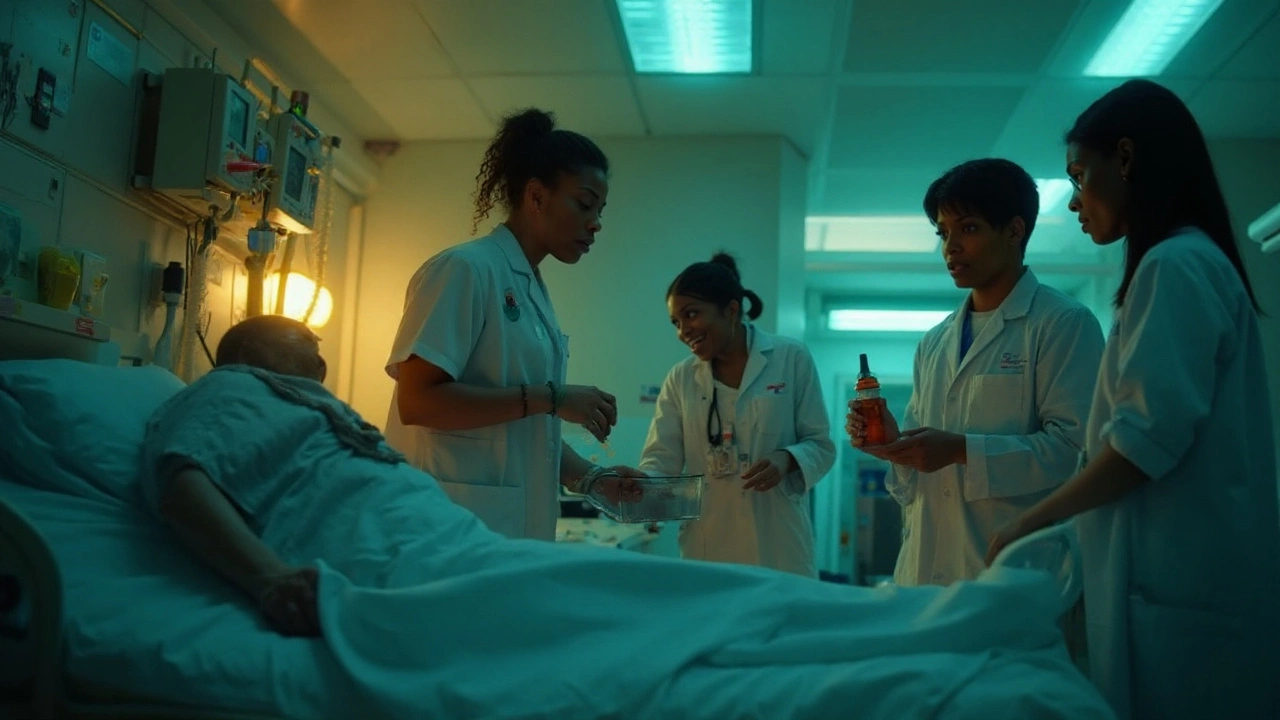Signs of Digoxin Overdose – Spotting Trouble Early
If you take digoxin for heart failure or atrial fibrillation, you already know it’s a powerful drug. But even a small slip‑up can tip you into toxicity. The good news? Most warning signs show up fast, and knowing them can save a life.
Common Symptoms to Watch For
Digoxin affects the heart’s electrical system, so the first clues often involve rhythm changes. Look out for a slow heartbeat (bradycardia), irregular beats, or a feeling that your heart is “skipping” a beat. Many people describe a vague sense of dizziness or light‑headedness.
Gastrointestinal upset is another red flag. Nausea, vomiting, loss of appetite, and stomach cramps can pop up before you notice any heart‑related issues. Some patients even report a metallic taste in their mouth.
Vision changes are surprisingly common in digoxin toxicity. You might see yellow‑green halos around lights, blurred vision, or a feeling that everything is slightly out of focus. If you notice these visual quirks, treat them as a serious alarm.Headaches, confusion, or sudden mood swings also signal that the drug is getting into the brain. Forgetfulness, agitation, or feeling unusually sleepy should never be ignored.
When to Seek Emergency Care
Any combination of the symptoms above warrants a call to your doctor right away, but certain signs demand immediate attention. A heart rate under 60 beats per minute, fainting spells, or chest pain are medical emergencies.
If you notice rapid breathing, severe weakness, or a sudden drop in blood pressure, call 911. These indicate that the heart isn’t pumping effectively and the body is in distress.
Even if you only have mild nausea but you’ve recently missed a dose or taken an extra one, get checked. Blood tests can measure digoxin levels, and doctors can adjust the dose or give antidotes like digoxin‑specific antibody fragments.
Remember, kids and elderly patients are especially vulnerable. Keep all digoxin containers out of reach of children, and use a pill organizer to avoid double‑dosing.
Bottom line: stay alert, track any new or weird feelings, and don’t wait to call a healthcare professional. Spotting the signs early can keep digoxin working for you without dangerous side effects.
Digoxin Overdose: Prevention, Early Signs, and Evidence-Based Treatment
Clear, practical guide to prevent, recognize, and treat digoxin toxicity. Includes red flags, step-by-step care, Fab dosing, and safety checklists.
